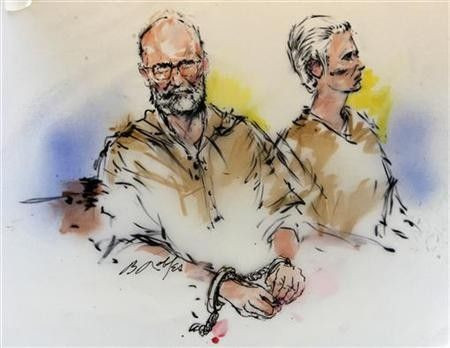Whitey Bulger, Reviled By Many, Still Draws Sympathy

To the families of James Whitey Bulger's alleged victims, to think of Whitey Bulger as anything but a villain would be somewhere between disrespectful and willfully ignorant. But to some of the residents of South Boston, the 'Elvis of Gangsters' was a neighborhood figure with a reputation for generosity.
Calling a man who faces 19 counts of murder and was apprehended with an apartment full of cash and guns benevolent may seem absurd. But it also reflects the extent to which Bulger's rise was inextricably bound to the neighborhood that produced him.
Mary Child, who grew up around the corner from Whitey, called him a legend and a Robin Hood, and struggled to reconicle memories of his kindness with reports of his brutality.
Allegedly he did a lot of bad stuff, she said. I don't know, but he did some good stuff, too. Even my mother, who passed away at 93 a few years ago, would say, 'Why do they treat Whitey that way? He was very nice and opened doors for me.'
Bulger was known to provide for the working class residents of Southie and was credited with blocking the drug trade from infiltrating the streets. It is a familiar pattern of winning trust, but seasoned investigators say it is a ruse.
You could go back in the annals of criminal history and you'd be hard-pressed to find anyone as diabolical as Bulger, said Tom Duffy, a one of the lead investigators in the criminal case against Bulger.
If there was an elderly woman carrying a bag of groceries across the street, he would take the groceries and carry them for her, Duffy added. People liked that about him. It gave them the psychological feeling that their neighborhood was being protected when he was around.
WPRI crime reporter Tim White wrote a column detailing his frustration at the common reaction that law enforcement is being overzealous in pursuing sometimes-beloved figures like Bulger, recounting angry phone calls in which inevitably, the caller is one of the 'Robin Hood' believers: someone who not only felt the reputed mobster protected the neighborhood from outside criminal elements, but blocked drugs from permeating the streets.
White rejected the idea, underscoring Bulger's many acts of violence -- including murders that occured in the same neighborhoods he was purported to keep safe. The drug protector legend was more myth than reality, White added, citing the opinion of the FBI's organized crime chief for New England, Jeffrey Sallet.
If you look at the rationale, mob guys banned dealing narcotics because of strict sentencing -- that was their concern, Sallet said. It wasn't that these guys were 'Robin Hood' and trying to be good and had some code of ethics for dealing.
© Copyright IBTimes 2025. All rights reserved.





















